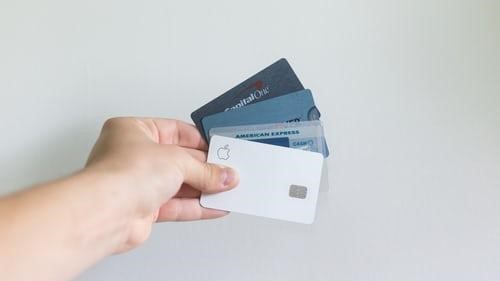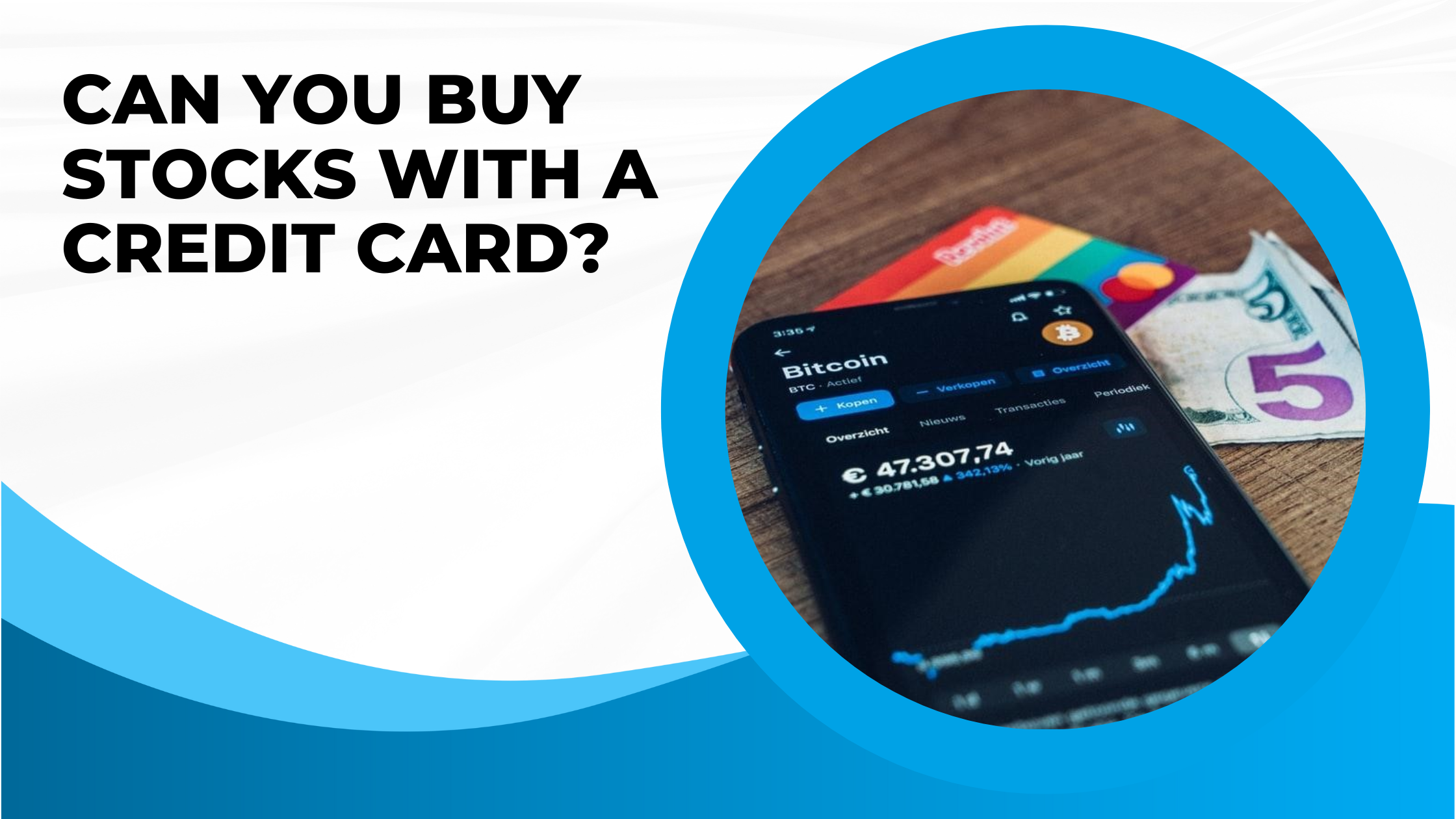A credit card is a way to buy something you can’t afford. But can you buy stocks, shares, and even crypto by using a credit card?
The answer is YES. You can buy stocks using a credit card.
You will still need to pay it off, but it is a way to get money fast if you are desperate to buy stocks.
Table of Contents
ToggleIncreasing Popularity of the Stock Market
Due to the recent downturn in the stock market, many people have taken advantage of the current recession to buy stocks at a reduced cost.
In addition, people with some extra cash may consider putting that income into the stock market to invest their money.
Using a credit card to buy stocks is not the best decision. It carries many risks. It could put you at risk of fraud, damage your credit, and above all, you could lose much more than you gain.
What Are the Risks of Buying Stocks with a Credit Card?
Investing your money in stocks already carries risk. It isn’t enjoyable to lose your own money. It is even worse to lose money from borrowed funds, which can significantly affect your finances.
The ideal situation is to invest money, knowing that you could lose it. That is, use money that you are willing to lose. This gives you the advantage of a calculated risk.
If you do not have the financial capacity to pay the amount you are investing, it is much more likely that you will accumulate more interest in your balance than what you can perceive as a return on the shares you bought.
Buying stocks with credit card equity
Investing in stocks with credit card equity could increase credit card debt, delay payments, and ultimately damage your credit history.
Investing in stocks with the help of a credit card is borrowing money you won’t be able to pay back. The best thing is to invest only the money you can afford to pay back now, evaluating all the risks beforehand.
Credit Card Fraud Risks
According to the Securities and Exchange Commission, almost no reputable companies allow using credit cards to invest in stocks.
Therefore, it is likely that any broker allowing this is suspicious, to begin with, and it is easy to see that their intentions may not be the best.
If you wish to acquire shares using a credit card, take the necessary precautions so that you do not have problems with being cheated and questionable transactions.
Keep in mind that any suspicious movement should be reported to the issuing bank of the credit card company you are using.
Credit Card Investment Fees
Buying stocks with a credit card involves fees:
- Cash advance fees
- Late payment fees
- Interest fees
High Risk
Investing in stocks is already risky, but this is increased by using a credit card. Remember that the stock market is highly volatile, corroborated by the covid-19 pandemic. The rewards you can reap can be quickly wiped out in a recession.
You may also put your bank account at risk. Credit card issuers, for security reasons, continuously monitor the type of purchases you make with your card.
The purchase of shares can be a risky alert for them. In some cases, they could cancel your account and affect your credit history.
Your Investment Tax Obligations
In addition to the fees buying shares with a credit card can generate, you should consider that the profits generated may be subject to taxes. Therefore, your earnings may be further reduced.
Is There a Safe Way to Invest in Stocks with a Credit Card?
As mentioned above, buying stocks with a credit card is possible, and you can make a profit in the market, but it is not the best option as it is high-risk. However, there are safer ways to do it because it is not about buying stocks directly but using credit cards to increase funds.
Most online brokerages do not allow you to buy stocks directly with your credit card as they have higher processing fees.
Using an Investment Application
One of the ways to invest safely is by using an investment app. Some apps allow you to link your credit card to a rounding program, and every time you make a purchase, the app has a “found money” feature, which helps you earn money when you shop with an app partner.
Other apps allow you to send funds from a credit card by charging a 3% processing fee. You can avoid this fee by transferring funds from a checking account. Transfers may take a couple of days, but you save the processing fee.
Using a Brokerage Credit Card
Some brokerages offer credit cards that are not exclusive to them but are shared with another brand. These cards are similar to credit cards provided by hotels or airlines.
You can deposit your rewards directly into your current account and get a bonus. Some credit cards even offer travel benefits.
Withdrawing cash from an ATM
You can deposit cash into your bank account linked to your trading account. You can also deposit directly into your trading account with a cash advance check.
The disadvantage of this method is that cash advances have higher interest rates. And they begin to accrue interest with no grace period.
Acquiring a Credit Card that Invests in Rewards
Many credit cards give you cashback bonuses, points, or miles that you can use on future eligible purchases. And some credit cards allow you to deposit credit card rewards into an investment account.
Redeeming Points for Cash
Once you have your rewards credit card, you can request cashback through a check or deposit. This cashback can be used to fund your investment strategy.
Please note that the credit card company may require you to reach a minimum amount to receive cashback.
Using PayPal
You can create two PayPal accounts and link one to your credit card and the other to your bank account. This will allow you to send money to yourself from the account linked to the credit card to the bank account.
You may also be able to deposit funds into your brokerage account directly from PayPal. If not, you can withdraw your funds from PayPal to your bank account linked to the brokerage account.
Should I Use a Credit Card to Buy Stocks?
We know it’s a tempting option.
One way is to withdraw money from your card and take advantage of the grace period for accrued interest. In the meantime, you can invest that money and, if you’re lucky, start earning a return on the investment before the interest begins to accrue.
It may sound like a great plan, but it’s tough to make it work in practice. Credit card annual fees are generally between 8% and 24%.
This is important to consider as it is quite a high price to borrow money without the certainty of paying it back.
Most credit card issuers consider withdrawing funds from the credit card as a cash advance transaction and therefore charge a higher interest rate than the purchase interest rate.
Bottom Line
All decisions you make regarding your money are yours alone. You can take advice from an expert, but ultimately you will make any investment decision. The chances are that when advising you, you will be warned of all these risks that we have listed in this post.
Margin Accounts
If you want to invest with the help of a credit card even with all the risks, you can consider opening a margin account. This margin account will allow you to borrow money to invest in stocks.
This way, you can pay for half of an investment and then borrow the remaining funds from your broker.
When stock prices are down, it is an excellent time to buy. But always do it responsibly.
If you decide to use a credit card to buy stocks
If you decide to do so, remember to consider the option of a co-branded investment rewards credit card. Another option that can be very useful is getting a 0% balance transfer or low APR credit card.
You can acquire money through credit to transfer your debt to a balance transfer card that offers a 0% or low rate. By doing this, you can ensure that your investment returns can cover the transfer rate.
Remember to pay off the balance before the 0% or low-rate introductory promotion ends. Also, remember that balance transfer fees are another fee to consider, as they can cost you between 1 and 3% of the amount transferred.
Following these recommendations will give you a better chance of maximizing your purchasing power when buying stocks with a credit card.


